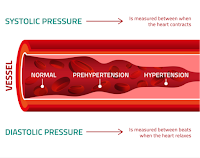In this mental health series, we will be diving deep,
weekly, into mental health-related disorders, including:
1. Anxiety
2.
Depression
3. Bipolar disorder
4. Schizophrenia
5. Obsessive-compulsive disorder (OCD)
6. Post-traumatic stress disorder (PTSD)
7. Attention-deficit/hyperactivity disorder (ADHD)
8. Eating disorders (such as anorexia nervosa and bulimia
nervosa)
9. Borderline personality disorder (BPD)
10. Substance abuse disorders (such as alcoholism and drug
addiction)
Today’s focus will be on Anxiety.
According to the World Health Organization (WHO),
approximately 1 in 4 people are affected by mental or neurological disorders at
some point in their lives. This means an estimated 450 million people worldwide suffer from such conditions.
As for anxiety disorder, it is
estimated that around 275 million people worldwide suffer from anxiety
disorders such as panic attacks and generalised anxiety disorder. However, it
is essential to note that these statistics are subject to change as more
studies are conducted and more data is gathered.
Anxiety-related disorders are a group of mental health
conditions characterised by excessive and persistent feelings of anxiety, fear
or worry. These disorders can be debilitating and interfere with daily
activities, relationships and overall quality of life. Some common
anxiety-related disorders include:
1. Generalized anxiety disorder (GAD)
2. Panic disorder
3. Social anxiety disorder
4. Specific phobias
5. obsessive-compulsive disorder (OCD)
6. post-traumatic stress disorder (PTSD)
Impact of Anxiety on mental wellness
Anxiety can cause physical symptoms such as increased heart
rate, rapid breathing, and sweating. These symptoms can make an individual feel
like they are in danger, even if no actual threat exists. When anxiety
persists, it can lead to chronic stress, which can negatively impact mental and
physical health. Anxiety disorders can lead to depression, substance abuse, and
sleep disorders if left untreated. Moreover, anxiety can interfere with a
person's ability to form and maintain healthy relationships and social
connections. It also makes it difficult to perform daily tasks and make critical
decisions.
General symptoms include:
- Feeling nervous or restless
- Having a sense of impending danger or panic
- Increased heart rate or sweating
- Hyperventilation or breathlessness
- Difficulty concentrating
- Trouble sleeping
Ways to resolve anxiety attacks.
If you are experiencing feelings of anxiety, it is essential
to seek help from a mental health professional. They can provide you with the necessary
resources and effective treatments to manage anxiety and prevent it from
affecting your mental health. These include:
1. Psychotherapy: Cognitive-behavioral therapy (CBT) is an
effective form of psychotherapy that helps individuals identify negative
thought patterns and replace them with positive ones.
2. Medications: Antidepressants, anxiolytics, and
beta-blockers are some of the common medications prescribed to treat anxiety
disorders.
3. Relaxation techniques: Techniques like deep breathing, progressive
muscle relaxation, and mindfulness meditation can help reduce anxiety symptoms.
4. Physical exercise: Regular exercise can elevate mood,
improve sleep, and reduce anxiety symptoms.
5. Self-care: Eating a healthy diet, getting enough sleep,
avoiding alcohol and caffeine, and engaging in activities that bring joy are
some of the self-care strategies that can help manage anxiety.
It is essential to consult with a mental health professional
to determine the most effective treatment strategy for an individual's specific
type and level of anxiety.
Sources:
1. National Alliance on Mental Illness (NAMI) - https://www.nami.org
2. Anxiety and Depression Association of America (ADAA) - https://adaa.org
3. Mental Health America (MHA) - https://www.mhanational.org
4. Substance Abuse and Mental Health Services Administration
(SAMHSA) - https://www.samhsa.gov
5. American Psychological Association (APA) - https://www.apa.org







.jpg)
